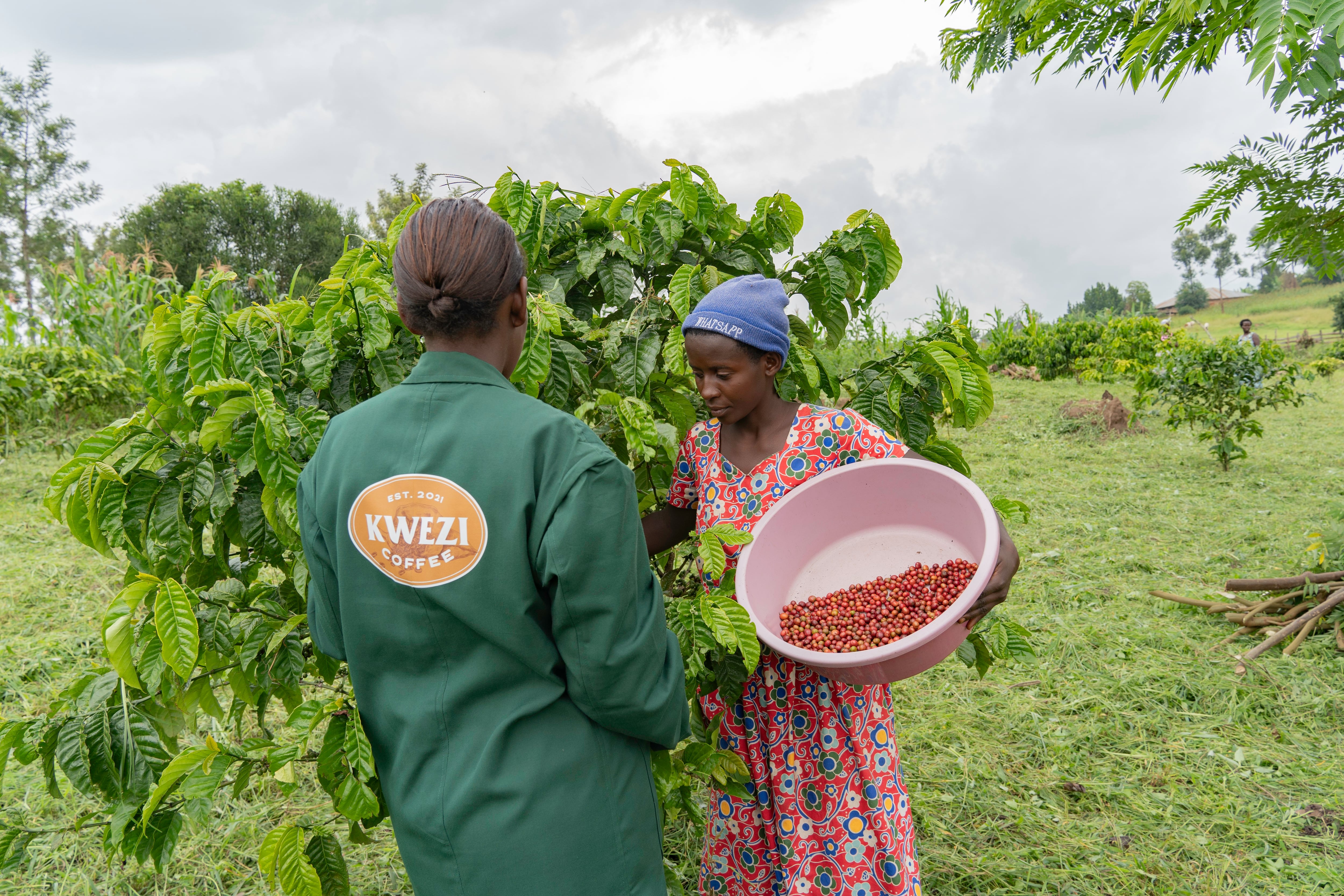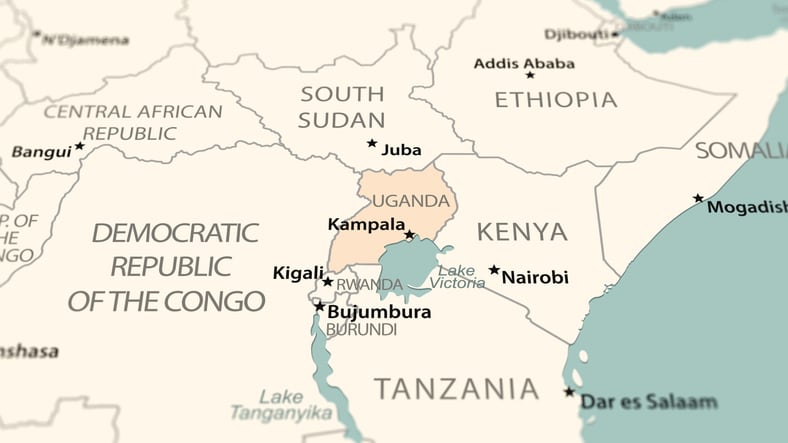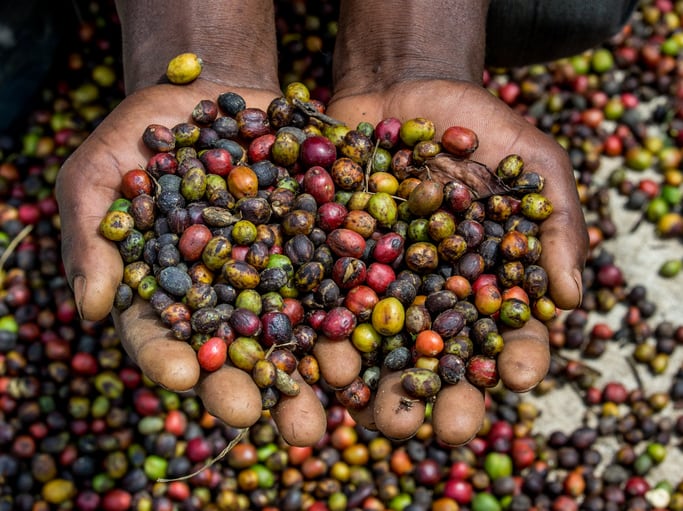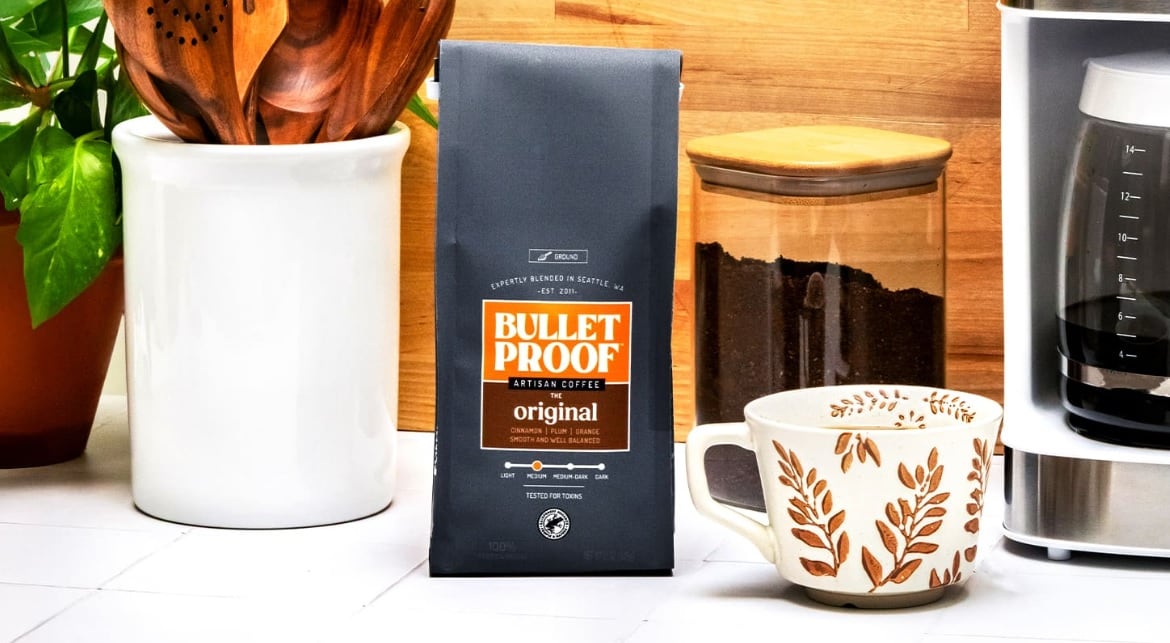Uganda’s coffee exports reached a 30-year high in 2024: and the industry sees the potential to grow further as it taps into key global coffee trends.
And while the future of Arabica globally is shaky (the variety being notoriously susceptible to climate change and variations in conditions) Uganda boasts expertise in the more robust Robusta.
Uganda: The world’s sixth largest coffee producer
The world’s coffee market is, of course, dominated by Brazil and Vietnam: which produce 38% and 17% of coffee respectively.
But Uganda still earns its place as the world’s sixth largest coffee producer, after Colombia, Indonesia and Ethiopia.
And it has a long and distinctive history in coffee. Robusta is indigenous to Uganda, and still the most dominant coffee variety in the country today: accounting for around 85% of total production.
Wild Robusta coffee has grown naturally for centuries in the forests surrounding Lake Victoria, and smallholder cultivation of the crop began as early as the 19th century.
Arabica coffee arrived in Uganda later, around the early 1900s, introduced by missionaries from neighboring Ethiopia and Kenya. Though Arabica represents a smaller share of Uganda’s coffee production, about 15%, it is increasingly recognized for its quality and potential in specialty markets.

Uganda’s coffee exports reached a 30-year high in 2024, with volumes totaling 6.13 million 60-kilogram bags and earnings increasing by 35% to $1.14 billion.
One of the targets identified for growth is the UK: where the specialty coffee market is buzzing. But there’s also plenty of potential globally.
“These [export] figures reflect not only Uganda’s significant contribution to global Robusta supply but also its growing relevance as a producer of high-quality Arabica, especially in a global context where climate-related challenges are affecting output in traditional coffee powerhouses like Brazil and Vietnam,” said Mixtli de la Peña Gimenez, UKTP Project Manager for Uganda at the International Trade Centre, who is helping raise visibility of Ugandan coffee market in the promising UK market.
Improved coffee quality and effective regulation are other factors, he added.
Europe remains the primary market for exports, importing 64% of Uganda’s coffee. That’s followed by Asia at 19%, Africa at 14%, and North America at 4%.
Robusta and Arabica
Robusta is best suited to lower-altitude regions with warm, humid climates, such as central Uganda, where it thrives in the fertile soils surrounding Lake Victoria. Examples include:
> Mwanyi Terimba: Fruity, Spicy, Caramel, Chocolate
> Brand Coffee Farm: Good fragrance and Aroma, Cup flavour is very good with a smooth mouth feel and lingering after taste
> The Edge Coffee: Mild sweet Finish, Mild floral, roasted cocoa notes, dark chocolates with a smooth body. A balanced salt to acid ratio.
> Dream coffee: Smokey Nutty Notes
> Clarke Farm Coffee: Good Aroma, Medium Body, lemon after taste, clean cup. Fragrance is nutty and fruity.
Unlike Robusta, Arabica requires higher altitudes and cooler temperatures. Uganda’s eastern and western highlands, particularly the slopes of Mount Elgon and the Rwenzori Mountains, offer ideal conditions for its cultivation thanks to their volcanic soils, reliable rainfall, and rich biodiversity. Examples include:
> Kwezi Coffee: Cherry, red stone fruit, chocolate, light ferment in finish, light citrus notes
> Carico: Crisp apple, lemon grass herbals, generic tropical, cane sugar finish
> Kyagalanyi Coffee: winey, fruity, berries, chocolate, sweet, medium acidity, heavy body, caramel, malt-like
> Ankole Coffee: Generic red fruit, chocolate
> Carico: Vanilla, Floral, dry fruits, chocolate, dry fruits, molasses
> Zamani Coffee: Balanced and bright flavour with hints of tamarind, orange, and chocolate with a lemon-like acidity and a bright finish.
Tapping into opportunities
Uganda’s coffee industry spies two key opportunities moving forward. Its focus is on sustainability and specialty coffee: areas that are important to consumers globally.
“There is a big opportunity for Ugandan Coffee to raise awareness about the sustainable practices in place for growing coffee in Uganda,” said de la Peña Gimenez.
“Another of the biggest opportunities for the Ugandan coffee industry lies in its ability to showcase its growing specialty coffee production.
“With global supply affected by poor harvests in major producers like Brazil and Vietnam, Uganda is well positioned to offer an alternative source of high-quality coffee.
“This creates a window for Ugandan producers to gain visibility, build long-term relationships with buyers, and highlight the unique profiles and resilience of their coffees on the international stage.”
Tackling the challenges of climate change
Uganda’s young generation of growers are adapting to the implications of climate change: with agroforestry, climate-smart agriculture and initiatives such as shade-planting and beekeeping in place.
For example, Ankole Cooperative Union, located in the fertile volcanic soils of Southwestern Uganda, at altitudes ranging from 1400 to 1900 metres above sea level, is committed to developing local communities and has helped fund schools in the villages they work with. Its member farmers each manage small-scale farms averaging 1.5 acres, carefully tending to 600-700 coffee trees. Their farming practices include maintaining healthy soils, pruning the coffee bushes, and intercropping with nutrient-rich trees and plants such as bananas, providing partial shade and mulch for the soil. With their high altitude these farms produce coffee that exhibits a distinctive cup profile with floral, fruity, and sweet notes.
On the back of strong export growth, coffee players know there are still export markets which have yet to reach their full potential.
The UK is one of these. While best known for tea (still an important drink for Brits), coffee is thriving. In fact, coffee consumption in the UK is one of the highest in the world. Brits drink an average of 2.3 cups per person, per day. Yet Ugandan coffee accounts for just 1% of British coffee imports.
Ugandan Coffee was out in force at the London Coffee Festival last month: helping introduce its products to coffee operators, baristas and a wide range of coffee stakeholders.
However, growth will not be without its challenges.
“As a landlocked country, Uganda faces inherent logistical challenges that complicate its ability to export goods efficiently, including coffee – its top export commodity,” explained de la Peña Gimenez.
“Without direct access to seaports, Uganda relies heavily on transit through neighboring countries, primarily via the Port of Mombasa in Kenya and the Port of Dar es Salaam in Tanzania.

“This dependence increases transportation time, adds layers of bureaucracy, and exposes exporters to fluctuating freight costs, port congestion, and cross-border regulatory delays. These factors can significantly impact the competitiveness of Ugandan coffee in global markets, particularly in terms of delivery timelines, quality preservation, and cost-effectiveness.”
However, things are changing. A new direct airfreight route from Entebbe to London is set to significantly improve Uganda’s export connectivity when it comes to building those important exports to the UK.
“This development will enable faster and more reliable delivery of premium goods, including specialty coffee, helping producers meet tight timelines and preserve quality for high-end markets,” said de la Peña Gimenez.



